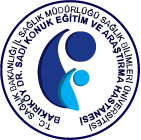ABSTRACT
Objective:
The aim of this study is to compare physical symptoms and childhood psychological trauma levels of bruxism patients with healty controls and to establish its relevance with sociodemographic characteristics.
Material and Methods:
This study was conducted in Department of Psychiatry in Mustafa Kemal University, Medical School and Faculty of Dentistry on 57 patients with bruxism and on 57 healthy controls who applied to outpatient clinics and accepted to join the study. Clinical diagnosis of bruxism was made according to Rugh and Harlan’s criteria of selection. Sociodemographics data sheet, Somatosensory Amplification Scale (SSAS) and Childhood Trauma Questionnaire (CTQ) were applied by clinicians.
Results:
The mean age of patients with bruxism was determined 28.7±9.1 years, 63.1% (n=36) were women, 56.1% (n=32) were unmarried, and 54.3% (n=31) had low socioeconomic level. The mean SSAS score of patients with bruxism was detected statistically significantly higher than that of control group, but there was no statistically significant difference in the mean CTQ value between patient and control groups. There was positive and significantly correlation between CTQ and SSAS scores.
Conclusion:
In our study, increased focusing on physical symptoms, and a positive correlation between psychologic trauma and physical symptoms are defined in patients with bruxism. This fiunding points out that patients with bruxism may perceive normal physical sensations as intense, annoying and noxious. It is believed that individuals with bruxism seeking medical advice from different clinics may deserve a consultation to psychiatry clinics for diagnosis and treatment to define any underlying causes.



